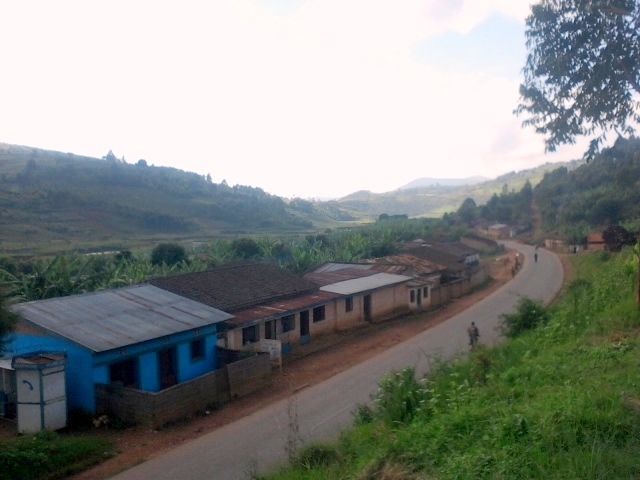 One of the good things that this fellowship did is allow me to leave Buja, the main city of Burundi, to go live and work in a rural zone. From a city boy point of view, all I knew about the rural zones of Burundi was what I use to see while going on a bus trip to Rwanda, or when I came for weekends to have fun and party with my friends. But now, I really have a different point of view of the Burundian rural zones.
One of the good things that this fellowship did is allow me to leave Buja, the main city of Burundi, to go live and work in a rural zone. From a city boy point of view, all I knew about the rural zones of Burundi was what I use to see while going on a bus trip to Rwanda, or when I came for weekends to have fun and party with my friends. But now, I really have a different point of view of the Burundian rural zones.
In Africa, and particularly in Burundi, there is always a great difference between main cities and the rural zones. This difference is not only based on the common differences between cities and rural areas – most of the time due to differences in lifestyle and culture. In Africa, that difference goes beyond lifestyle and culture. In a city, people will have easier access to health, pure water, schools and food, than those leaving in a rural zone. Even political decisions that target development are mostly geared toward developing urban zones rather than rural. A large percentage of jobs created in an entire country are usually in urban zones. Though the fact is, in most African countries, around or over 80 percent of the population is rural. In Burundi, even in the media and newspapers, one always hears or reads news that talk about what only happens in the main city as if the rural population would just have to adjust their lifestyle to the urban one. There is even a big gap in basic life conditions between rural zones and urban zones.
The ignorance of the rural zones’ life conditions on the part of urban people is one of the contributing factors to this situation. Urban people would complain about not having a good internet connection or not having access to their FACEBOOK account; they would even put pressure on government because of that. Meanwhile in the rural zone, people would be happy to have a good drinking water source or health center close to their homes.
Spending a fellowship year in a rural zone opened up my eyes to the reality of life in a rural zone. If I was asked few months before my fellowship starts how life is in Burundi, I could have surely based my answer on how life is in Bujumbura. The fellowship helped me to be aware and approach the reality of Burundian life from a different angle and with a brand new understanding. I would like to see more young Burundians living in Buja offered an opportunity to discover the rural life, not only from books in the classroom or from stories in the media, but discover it on their own, through direct experience. Global Health Corps offered me such an opportunity, and I’m so grateful.
